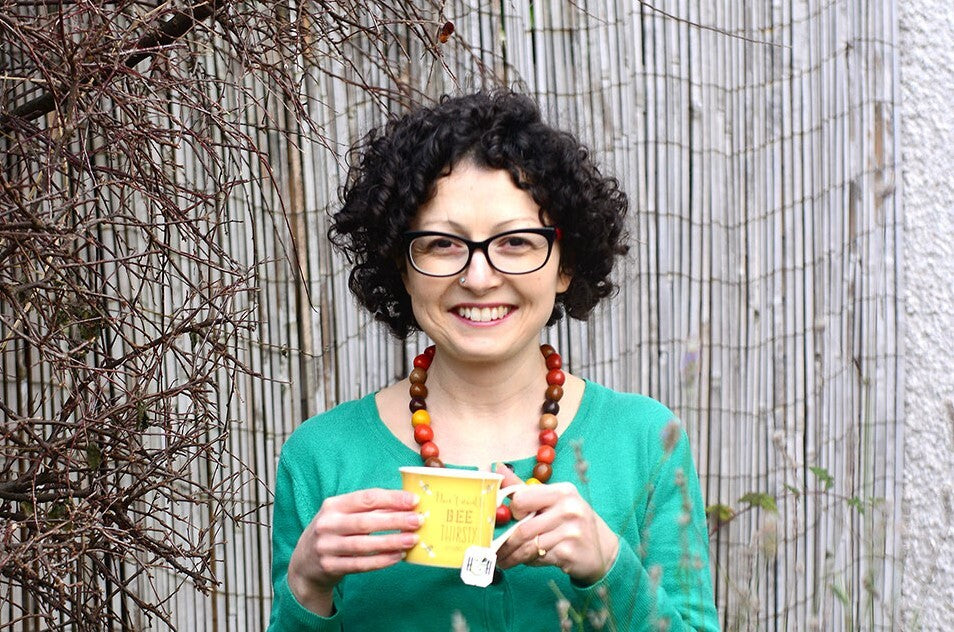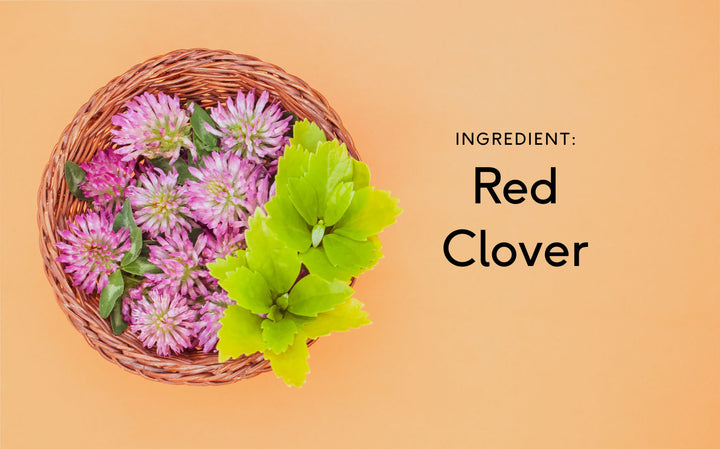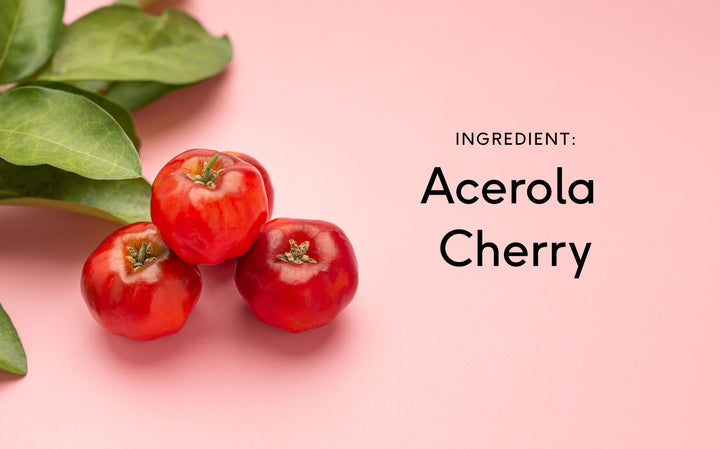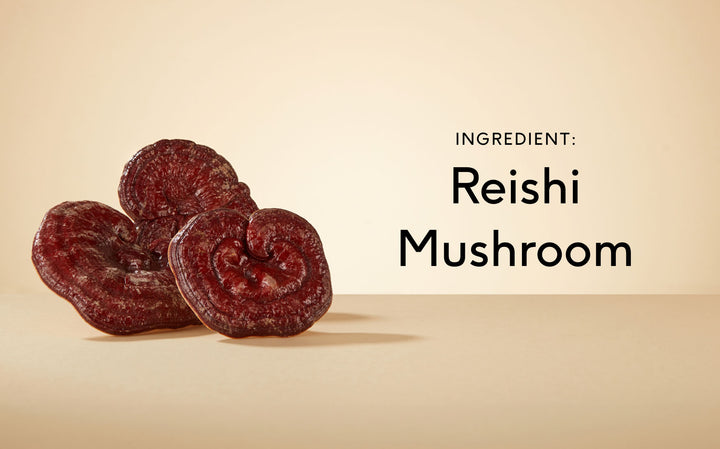Best Vitamins and Minerals for Thyroid Function [2025 Nutritionist Reviewed]
Lara is a Registered Nutritional Therapist and founder of Nutrition for Vitality and the 28-Day Hormone Makeover online programme. She is an experienced practitioner, with a particular interest in female health and hormone balancing, weight management and weight loss resistance, gut health, chronic fatigue, and fibromyalgia.
Lara is a Registered Nutritional Therapist and founder of Nutrition for Vitality and the 28-Day Hormone Makeover online programme. She is an experienced practitioner, with a particular interest in female health and hormone balancing, weight management and weight loss resistance, gut health, chronic fatigue, and fibromyalgia.
Table of contents
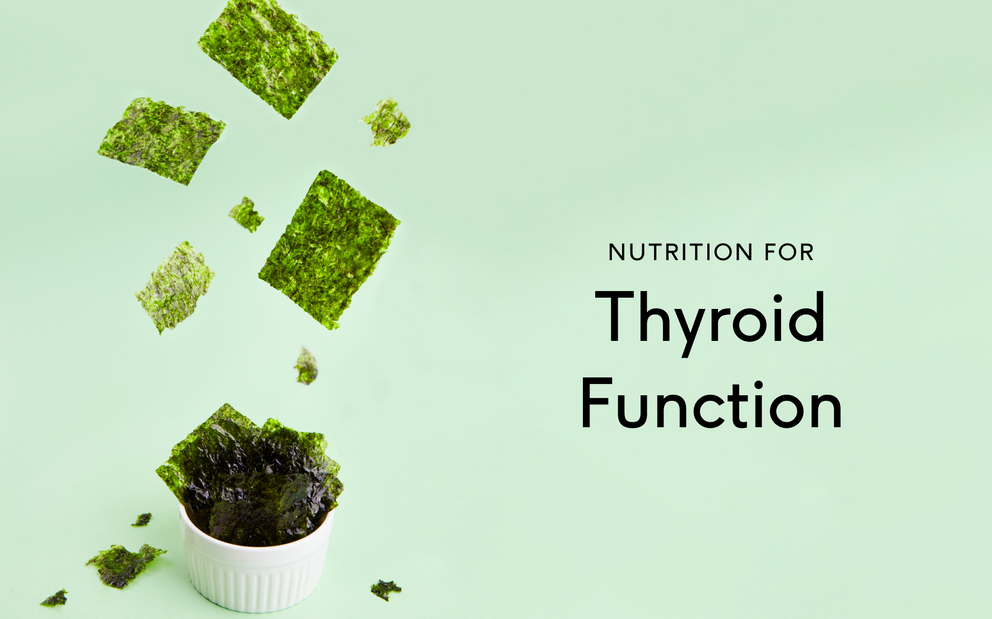
| Underactive Thyroid Symptoms | Weight gain, depression, tiredness, sensitivity to cold, constipation, brain fog, and muscle aches and pains. |
| Overactive Thyroid Symptoms | Nervousness, anxiety, insomnia, mood swings, heat sensitivity, palpitations, twitching and weight loss. |
| Vitamins for Thyroid function | Vitamin A, Vitamin D, Vitamin B6, Vitamin B12 |
| Minerals for Thyroid function | Iodine, Zinc, Selenium, Iron, Magnesium |
| Can Vitamin and Mineral deficiency cause thyroid issues? | Yes |
| How long does it take for Thyroid supplements to work? | Studies have found that dietary supplements have improved thyroid function after just 12 weeks |
| Can Thyroid medications interfere with certain vitamins and minerals? | Yes, high amounts of Iodine (kelp) and calcium supplements have been found to interfere with thyroid medication |
1. What is the Thyroid?
The thyroid is a small gland located in your neck which plays an important role producing hormones that regulate all the cells in the body. It works closely with the adrenal glands and supports metabolism and energy levels.
The thyroid is made of two lobes which are joined together by thyroid tissue. These lobes secrete hormones including thyroxine, also called T3, and triiodothyronine, called T4. T3 and T4 are made up of the trace mineral iodine, combined with the amino acid, Tyrosine. A hormone called thyroid stimulating hormone, or TSH, tells the thyroid how much of these hormones to produce. Thyrotropin-releasing hormone (TRH) is also important to note, it is produced by the hypothalamus and plays an important role in regulating thyroid function.
2. What can go wrong with the Thyroid?

The thyroid is one of those things that we don’t think about until something goes wrong. But unfortunately thyroid dysfunction is common, with 1 in 20 Brits suffering from some sort of thyroid disorder, according to the British Thyroid Association. The most common thyroid issues are an underactive thyroid, known as hypothyroidism, or an overactive thyroid, known as hyperthyroidism. Symptoms of an underactive thyroid include weight gain, depression, tiredness, sensitivity to cold, constipation, brain fog, and muscle aches and pains, while an overactive thyroid may come with symptoms like nervousness, anxiety, insomnia, mood swings, heat sensitivity, palpitations, twitching and weight loss.
Both conditions are commonly caused by autoimmune disease, where the body fails to recognise itself and attacks its own cells. Autoimmune hypothyroidism is called Hashimoto’s Thyroiditis, while the one that causes hyperthyroidism is called Grave’s Disease. In both cases, thyroid antibodies attack the thyroid.
Endocrinology is the branch of medicine that deals with hormone related disease, including thyroid problems, and you may see an Endocrinologist for thyroid testing if you have overactive or underactive thyroid symptoms.
3. Does the Thyroid need vitamins?
Vitamins and minerals are incredibly important for the functioning of all body systems, and this is certainly true of the thyroid. Iodine, selenium, tyrosine, zinc and iron are all required for thyroid hormone metabolism, and iodine is one of the main building blocks for the T3 and T4 hormones1.
Some vitamins and minerals like Vitamin A, C and selenium are antioxidants, which are also important as oxidative stress has been linked to thyroid disease2. And vitamins are also involved in the maintenance of the immune system; for example your Vitamin D levels can influence thyroid health3,4.
4. Can vitamins help with Thyroid function?
Yes, deficiency in certain vitamins and minerals has been associated with thyroid disorder3,5,6,7,8, and ensuring you have the right levels of these nutrients can really help with thyroid function, as well as your overall feelings of wellness.
It’s best to get the nutrients you need through food sources where possible, as your body can better regulate their uptake, especially when they are from plant sources, and because different nutrients work synergistically. Where this is difficult to achieve, taking vitamins as dietary supplements could be helpful to thyroid health, but you should always consult a healthcare provider or nutritional consultant first, especially if you are taking thyroid medication. There have been some cases of thyrotoxicosis (excessive thyroid hormone levels) where people have self-prescribed thyroid supplements in high concentrations9. We’ll discuss specific nutrients for thyroid health, below.
5. How do vitamins strengthen and improve Thyroid?
Several minerals are essential in the functioning of the thyroid, because they act as co-enzymes in thyroid hormone metabolism and regulation. Vitamins are also important because they are involved in the uptake of these minerals by the thyroid, because they act as antioxidants to protect the thyroid gland, and because of their role in the immune system. Remember that autoimmune disease is the most common cause of thyroid disorder, demonstrating the importance of a healthy immune system for thyroid health.
6. What minerals are good for Thyroid function?

Iodine
The nutrient best known for thyroid health is iodine. The majority of the body’s stores of this trace mineral are found in the thyroid gland and it is considered one of the most important nutrients for a healthy thyroid3.
Note however that the relationship between iodine and the thyroid is a complex one. While iodine deficiency is a common cause of thyroid problems, too much iodine can also cause, not only an overactive thyroid, but also conversely an underactive thyroid too3. Therefore, it’s important to get enough iodine without getting too much.
Adults need 140 micrograms of iodine per day; common sources are fish, eggs and cow’s milk10. Some plants contain iodine depending on the soil they are grown in. Seaweed is a rich vegan source of the mineral, but levels are difficult to determine, and regular consumers may end up with too much. The Vegan Society suggests vegans take an iodine supplement instead, which is easier to monitor. However, iodine supplements are not suitable for those with an overactive thyroid and for some people on thyroid medication like levothyroxine 9. Please consult a healthcare provider or nutritional consultant before taking iodine or other thyroid supplements.
Iron
Patients with thyroid disease have been found to be more likely to be deficient in iron5, and iron-deficient anaemia can impair thyroid functioning1. This essential mineral is involved in thyroid hormone metabolism and in the utilisation of iodine by the thyroid gland3. Reduced dietary iron has also been found to impact TSH levels and levels of T3 and T41.
Supplementing with iron has been found to improve thyroid hormone levels and adding it to thyroxine therapy (a treatment for hypothyroidism) was found to be more beneficial than thyroxine alone1. However some people get side effects from supplementing iron10 and it is best to try to get it from the diet where possible. Red meat is a common source of dietary iron, but there are many other food sources too including beans, chickpeas, nuts, seeds, quinoa, spinach, shellfish, fish, broccoli, and figs. Ensuring you have plenty of Vitamin C from fresh vegetables and fruit will help your body absorb iron.
Zinc
Zinc is another trace mineral, essential in the functioning of the thyroid. It plays a regulatory role in thyroid hormones T3, T4, TRH, and TSH and is involved in the conversion of T3 from T411.
Zinc deficiency inhibits thyroid hormones; studies have found that hypothyroid patients tend to have lower levels of the mineral, but that supplementation helped6.
Zinc is commonly obtained in the diet through meat, shellfish, and dairy; vegan sources include beans, chickpeas, nuts, seeds, and quinoa.
Selenium
Like iodine, the majority of the body’s stores of selenium are found in the thyroid gland3. Deficiency, which can lead to reduced thyroid function and production of thyroid hormones, is often found in patients with thyroid disorders3. Selenium also plays a role in the conversion of T3 from T4, and low levels are linked to thyroid tissue damage and goitre6. Brazil nuts are known to be a particularly good source of selenium, just two a day could meet your requirements12. Non-vegans can also obtain this mineral through fish, meat, and eggs. Alternatively, selenium supplements are also an option.
Magnesium
Magnesium is less well known for its role in thyroid health but nevertheless an important one, with a correlation found between low levels and poor thyroid functioning7. It’s thought that deficiency in magnesium can impair thyroid cells’ ability to uptake iodine, leading to a drop in thyroid hormone production7. Magnesium is a hugely important mineral for many body systems; make sure you eat plenty of green leafy vegetables to ensure your levels stay topped up.
7. What vitamins are good for Thyroid function?
Vitamin D
Vitamin D’s connection to thyroid health is through its role in the immune system. One of the main causes of thyroid disfunction is autoimmune disease, and low vitamin D levels are common amongst those with autoimmune hypothyroidism, leading scientists to hypothesise that vitamin D deficiency is a cause of the condition6.
We obtain most of the vitamin D we require through exposure to sun, but for those of us living in countries like the UK which are at high latitudes, we should consider a supplement during the winter months. You can read more about this on our Vitamin D blog.
Vitamin B12
Vitamin B12 deficiency is commonly seen in patients with Hashimoto’s Thyroiditis6. Deficiency may be due to lack of the nutrient in the diet, or poor absorption. Absorption declines with age, or may come about due to pernicious anaemia: an autoimmune condition effecting the absorption of the vitamin. Note that deficiency in B12 has similar symptoms to hypothyroid, including fatigue, poor memory, weakness, depression and tingling6. Vegans are at particular risk of Vitamin B12 deficiency, since it is obtained in the diet through eating animal products. Vegans can use fortified foods or dietary supplements to meet the 1.5 micrograms daily requirements. Note that the Vegan Society recommend consuming considerably more since your body won’t absorb it all: 3 mcg through food or 10 mcg through supplements.
Vitamin A
Vitamin A deficiency has been connected to poor thyroid functioning, including decreased uptake of iodine to the thyroid, thyroid enlargement, reduced production of thyroid hormones and altered TSH levels8. Vitamin A also supports the immune system and is an important antioxidant. This essential vitamin is obtained in its active form, retinol, through eating dairy, eggs, oily fish and liver; or it can be obtained through eating green leafy vegetables or yellow and orange fruits and vegetables like carrots, squash, and mango. These are sources of beta-carotene which convert to retinol in the body.
Vitamin B6
Vitamin B6 is a co-factor for many of the body’s functions and deficiency can lead to a number of issues including anaemia and hypothyroidism, while supplementation may help balance the thyroid hormones8. B6 is found in many foods including certain types of meat and fish, soya beans, peanuts, and oats. Taking a Vitamin B Complex can be a good idea to ensure your levels of all B Vitamins are topped up since they work synergistically to do various important roles in the body.
8. What additional ingredients can improve Thyroid function?
Ashwagandha
Ashwagandha is an adaptogenic herb used for centuries in Ayurvedic medicine to combat stress, and it’s also thought to be stimulating to the thyroidAshwagandha is also not recommended for those with autoimmune conditions due to its potentially stimulatory effect on the immune system.
Guggul
Guggul is made from the sap (gum resin) of the Commiphora mukul tree, which is native to India. It is particularly helpful in enhancing the function of the thyroid gland which further helps in increasing the production of thyroid hormones through the enzymatic approach and therefore, supports conversion of T4 to T3 hormones. Research has shown Guggul to be an effective treatment in the management of hypothyroidism.
Tyrosine
Tyrosine is an amino acid which plays an important role in the thyroid: it combines with iodine to produce the hormones T3 and T414. Tyrosine is known as a non-essential amino acid meaning you don’t need to obtain it from the diet as it can be synthesised from other amino acids by the body. However, making sure you get adequate protein will help to ensure you have enough tyrosine; either from animal sources or high protein plants like nuts, seeds and soya beans.
Probiotics
You might be surprised to learn that a healthy gut can support a healthy thyroid3. Where there is intestinal damage such as a leaky gut, antigens can cross over into the blood stream and activate an autoimmune response, such as in Grave’s Disease and Hashimoto’s Thyroiditis3. In fact it’s been found that these thyroid autoimmune diseases often coexist with gluten sensitivities or coeliac’s disease3. Leaky gut is an important consideration in autoimmune thyroid conditions – as both conditions can go hand in hand. Anyone with an autoimmune thyroid condition who has a leaky gut needs to remedy this to restore their health. Ingredients such as Glutamine, zinc carnosine, or collagen are all helpful for helping to repair intestinal damage, especially leaky gut.
Supplementation of pre and probiotics has been found to be beneficial in those with intestinal damage, in particular with the Lactobacillaceae and Bifidobacterium strains which are found to be low in people with autoimmune thyroid disease3. You can also keep your gut healthy by having a high fibre diet rich in fresh vegetables and wholegrains .
9. When is best to take vitamins for Thyroid function?
It’s advisable to try to meet your requirements of vitamins and minerals through a healthy well-balanced diet all of the time, rather than waiting until you have symptoms of hypothyroidism, or hyperthyroidism. This could protect you from future thyroid problems as well as support your general wellness. A multivitamin and mineral supplement could be taken to top up your levels of essential nutrients if required, and it is safe to do this on a regular, daily basis. For example Feel’s Multivitamin, which you can take daily, with or just after food.
10. How much of vitamins and minerals do I have to take for Thyroid daily?
This depends a lot on what thyroid condition you have, if any, and on your diet and current nutrient levels. Therefore, please always consult a healthcare provider or nutrition consultant to discuss, especially if you are on thyroid medications. They may carry out a blood test to determine your current vitamin and mineral levels.
11. Can vitamin deficiency cause Thyroid problems?
Patients with thyroid conditions have been typically found to have low levels of various nutrients including iodine 3, iron5, zinc and selenium6, magnesium7, Vitamin D and B126, Vitamin E and B68. Scientists do believe there is a cause-and-effect relationship happening in many of these cases, since these vitamins and minerals act as important co-factors for the production and maintenance of thyroid hormones, or because of their role in supporting the immune system, such as in the case of vitamin D.
12. Is an underactive thyroid a sign of vitamin deficiency?
If you have symptoms of hypothyroid (an underactive thyroid) then this may be due to a vitamin deficiency. Scientists think that autoimmune hypothyroidism may be caused by Vitamin D or Vitamin B12 deficiency6, and it has also been linked to low levels of Vitamins A and B68, as well as the minerals discussed above. Gut health also plays a huge role in autoimmunity.
13. Is an overactive thyroid a sign of a vitamin deficiency?
An overactive thyroid is more likely to be caused by excess of iodine rather than a deficiency of this or other nutrients3. But don’t forget that some vitamins help regulate the immune system, and autoimmune disease is a common cause of both underactive and overactive thyroid conditions. In fact, Vitamin D deficiency has been linked to hyperthyroid Grave’s disease15.
14. What vitamins should I take to prevent Thyroid issues?
Getting the vitamins and minerals you need is always best through a healthy well-balanced diet where possible, but dietary supplements could also be considered. Some thyroid supplements available are a blend of nutrients considered beneficial for thyroid support, or you could use a high quality Multivitamin like Feel’s which contains good levels of all the nutrients required for thyroid functioning including Iodine and Iron which not all multivitamins contain. It’s also a good idea to ensure you have enough protein in your diet. This will ensure you have the amino acid tyrosine which is important for thyroid health, and it is protein rich foods that tend to have the highest levels of the vitamins and minerals required for a healthy thyroid too.
15. Where to buy vitamins for Thyroid?
Multivitamins are available very cheaply in supermarkets and other high street shops but these are often poor quality, with low levels of nutrients and in poor forms. You can buy high quality supplements from health food stores or online stores like The Natural Dispensary, or get your Feel Multivitamin directly from us.
16. How long does it take for vitamins to work for Thyroid function?

The good news is that making changes to your diet or supplement regime can bring about a positive effect quite quickly. Studies have found that dietary supplements have improved thyroid function after just 12 weeks6.
17.Possible side-effects of taking vitamins for Thyroid?
As we have noted, it is really important to be careful when taking thyroid supplements, especially if you are taking thyroid medication or have a thyroid condition. There have been instances of people suffering from thyrotoxicosis through taking thyroid supplements or even high quantities of seaweed like kelp9.This is where the thyroid has become over-stimulated and produces an excess of thyroid hormones, which can lead to hyperthyroidism. It should also be remembered that some nutrients have a tolerable upper limit. Iodine’s tolerable upper limit is 1100 mcg and it is advised not to consume any more than 500 mcg daily, which includes food sources like kelp16.
If you have an underactive thyroid, it may be tempting to think taking high doses of supplements would help, but conversely, over stimulating the thyroid can actually decrease thyroid hormone production and make hypothyroid conditions worse, and this has been seen with B68 as well as iodine3.
Calcium supplements have also been found to interfere with thyroid medication17.
For these reasons it’s important to consult a healthcare provider or nutritional consultant before taking thyroid supplements.
References
- https://www.ncbi.nlm.nih.gov/pmc/articles/PMC6166193/
- https://www.ncbi.nlm.nih.gov/pmc/articles/PMC8465820/
- https://www.ncbi.nlm.nih.gov/pmc/articles/PMC7353203/
- https://www.ncbi.nlm.nih.gov/pmc/articles/PMC7445676/
- https://www.ncbi.nlm.nih.gov/pmc/articles/PMC6552785/
- https://pubmed.ncbi.nlm.nih.gov/25758370/
- https://www.ncbi.nlm.nih.gov/pmc/articles/PMC6028657/
- https://pubmed.ncbi.nlm.nih.gov/21879475/
- https://pubmed.ncbi.nlm.nih.gov/23758055/
- https://www.nhs.uk/conditions/vitamins-and-minerals/
- https://pubmed.ncbi.nlm.nih.gov/30982439/
- https://www.vegansociety.com/resources/nutrition-and-health/nutrients/selenium
- https://pubmed.ncbi.nlm.nih.gov/28829155/
- https://www.ncbi.nlm.nih.gov/pmc/articles/PMC4798095/
- https://www.ncbi.nlm.nih.gov/pmc/articles/PMC5618598/
- https://www.thyroid.org/american-thyroid-association-ata-issues-statement-on-the-potential-risks-of-excess-iodine-ingestion-and-exposure/
- https://www.ncbi.nlm.nih.gov/pmc/articles/PMC2293315/























































 Back
Back
